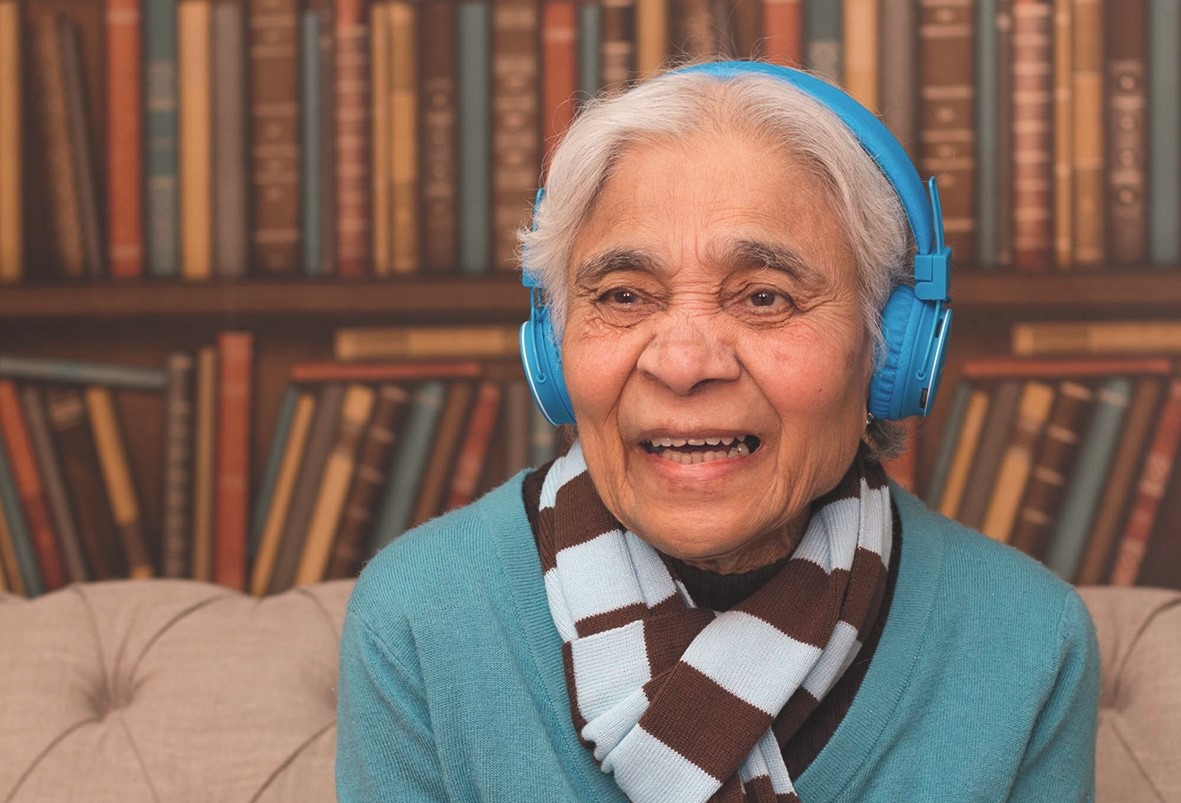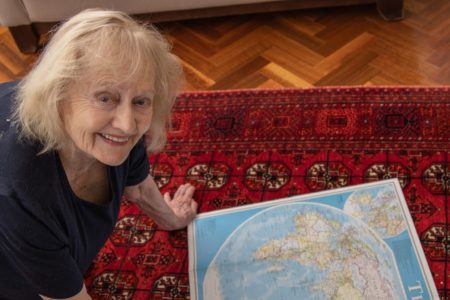By Cathy Withiel
Sunsets lost their beauty for David Ross-Smith when they were replaced by sundowners.
Sundowning is the term used to describe agitation and distress experienced in the early evening by those living with dementia. And as David watched his partner, Rev David Hodges AM, call out in confusion, he decided to put on a CD of classical music to lighten the mood.
David RS was unprepared for what happened next. The muscles in David H’s jaw relaxed and his features were transformed by joy as he was soothed by the beauty of his favourite composers.
And this experience, which happened more than a decade ago, has evolved into a program called Music For David, one of the many Uniting AgeWell has in place to enable those living with dementia to lead as joyful, purposeful and stress-free life as possible, as well as supporting their carers, who often experience exhaustion on top of their heartbreak.
Music For David aims to provide short-term relief through music for people living with dementia and their carers. Participants are provided with individually-curated playlists that may help ease symptoms of dementia, including restlessness and agitation.
The program was established and named in memory of David H, a founding member of the Uniting Church in Australia in 1977 and a minister at Toorak UC until his retirement in 1983. David had dementia for the last six years of his life, until his death in 2012 at the age of 88.
He was supported by his partner of more than 30 years, musician David RS, who became his full-time carer and who called in Uniting AgeWell’s home care team to help.
David RS stumbled on the soothing power of music by chance as he watched his partner become distressed during his daily sundowning episodes.
“It was heart-breaking to watch and I was utterly exhausted caring for David around the clock,” he says. “I just wanted to go for a walk in the evening for a bit of a break, but every time I left the room he would fret.”
David put on classical music and was astounded at how quickly it soothed his partner. And it allowed him time to take a break.
“I always knew the power that music could evoke. But to see it in action was quite magical,” he explains.
David says the program’s title, Music For David, applies to those living with dementia and their carers. “We’re both named David – it’s a touching tribute to the wellbeing of both,” he says.
Dementia is one of the biggest challenges facing the aged care sector. The condition is incurable and cases are skyrocketing, with about half of those entering aged care now diagnosed with the disease. Most people with dementia still live at home, so by the time they move into residential aged care the disease is advanced and their needs are specialised.

Music has the ability to evoke great emotions and bring real joy to people.
The good news is, a lot of research is being done into Alzheimer’s disease and dementia – illnesses of the brain that affect memory, thinking, behaviour and the ability to perform everyday activities.
Dementia statistics make for heavy, but necessary reading. In Australia, about 459,000 people are living with dementia and it’s estimated that number will more than double by 2058. It is the single greatest cause of disability in Australians aged over 65.
Another layer of complexity is the increasing number of older people from culturally and linguistically diverse communities. The National Institute for Dementia Research says people from CALD backgrounds have less knowledge about dementia, can harbour negative attitudes towards it and feel the stigma surrounding it intensely. Amplifying the challenge carers face, many older people with dementia revert to their mother tongue, sometimes not comprehensively spoken by those caring for them.
Uniting AgeWell, in collaboration with Deakin University, is running a digital living lab at one of its independent living villages, where researchers are tweaking an array of gadgets and assistive technology to enhance living safely and independently at home, particularly for people with dementia and memory loss.
One of the ways to help people re-engage long-term memory and live as well as they can is through music. Hearing is one of the last senses to be compromised by dementia and, long after speech – both understanding and speaking – has become a distorted jumble of words, music still makes sense.
Uniting AgeWell Director of AgeWell Centres Paul Warwick said music “reaches out to people in the way that words can’t”. “And the soothing and restorative power of music cannot be over emphasised,” he says. “Music brings joy and invokes memories.”
In 2010, David RS published Making Love Real, his partner’s scholarly works on Christianity and the Church. Proceeds were donated to Uniting AgeWell to help those living with dementia gain joy through music. A second edition with newly published material and the subtitle The Church and My Journey of Mind and Spirit was released last month.



